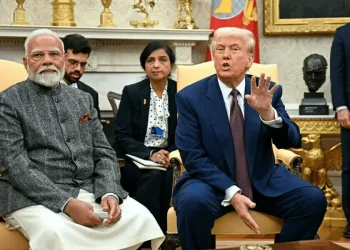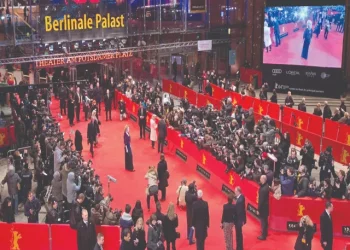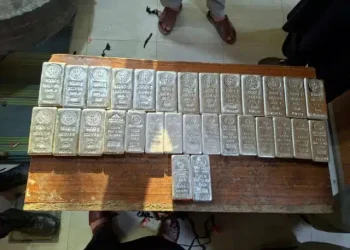German magazine Der Spiegel has come under fire from Indians who are condemning a cartoon published in its latest edition. The magazine portrays a rickety train that is overcrowded with passengers, both inside and atop the coaches, overtaking a swanky Chinese train on a parallel track. It has just two drivers, looking surprised at the sight of the Indian train.
According to United Nations projections, India has a population of 1,425,775,850, surpassing China for the first time.
The depiction is being widely viewed as ‘racist’ and derogatory, and has sparked a heated backlash on social media. It is being interpreted as a mocking reference to India’s emergence as the world’s most populous country, surpassing China.
The cartoon has been criticised by several Indians, including a federal minister, who said that the magazine was clinging to an outdated notion of India and had failed to recognise the country’s progress in recent years.
Rajeev Chandrasekhar, the minister, tweeted that despite the magazine’s attempts to mock India, the country was on track to become one of the world’s leading economies in the coming years. Kanchan Gupta, a senior adviser in the Ministry of Information and Broadcasting, also took to Twitter to denounce the cartoon as “outrageously racist”.
Dear Cartoonist at @derspiegel
Notwithstanding ur attmpt at mocking India, its not smart to bet against India under PM @narendramodi ji 💪🏻In a few years Indias economy will be bigger than germany's 😁😁#NewIndia pic.twitter.com/Evzooqfc2J
— Rajeev Chandrasekhar 🇮🇳(Modiyude Kutumbam) (@Rajeev_GoI) April 23, 2023
Kanchan Gupta, a senior adviser in the ministry of information and broadcasting, also took to Twitter to denounce the cartoon as “outrageously racist”.
👋🏽#Germany this is outrageously racist. @derspiegel caricaturing India in this manner has no resemblance to reality. Purpose is to show #India down and suck up to #China.
This is as bad if not worse than the racist cartoon in @nytimes lampooning India’s successful Mars mission. pic.twitter.com/z9MxcPQC7u— Kanchan Gupta (Hindu Bengali Refugee)🇮🇳 (@KanchanGupta) April 23, 2023
India’s unease with international media
This is not the first time that Western media has published cartoons that have been perceived as offensive by Indians.
In 2014, the New York Times published a cartoon mocking India’s feat in putting a robotic probe into orbit around Mars., which showed an Indian farmer with a cow knocking at the door of a room marked Elite Space Club.
Some Indians pointed out that it was true that during busy festivals when millions of Indians rush to go home, some trains do look like the one in the cartoon. However, Western criticism has always rankled Indian governments.
Cartoon by German Magazine ‘Der Spiegel’ is in bad taste. The Western World prefers to depict India as poor and struggling. They won’t show India’s Vande Bharat or upcoming bullet trains. Cannot wait for the next few years when India will overtake Germany as the 4th biggest GDP. pic.twitter.com/8KR037YVBQ
— Vijayasai Reddy V (@VSReddy_MP) April 24, 2023
The German cartoon on India's population is a crass & racist attempt at peddling old stereotypes, to showcase India as some exotic basket case. It reflects a denial – the West cannot accept India's growth story. So NYT shows a man with a cow & Der Spiegel has an overcrowded train https://t.co/nsJp0fmf1m
— Palki Sharma (@palkisu) April 25, 2023
In recent past, India dubbed as a ‘malicious conspiracy’ to defame Modi the recent BBC documentary, India: The Modi Question, which examined Prime Minister Narendra Modi’s role in the 2002 anti-Muslim riots.
In 2021, Modi himself made the same claim during an election rally in Assam, complaining that foreigners were managing Indian tea and yoga.
Recently, Baijayant Panda, an MP, and spokesperson for the ruling Bharatiya Janata Party, wrote a column in the Hindustan Times accusing the Western media of outright prejudice against India.
Overcrowded trains are still a common sight in many parts of India. The weekly news magazine Der Spiegel has yet to respond to the criticism of the cartoon.










 American Dollar Exchange Rate
American Dollar Exchange Rate